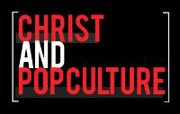Language provides a peek into the person who is communicating. The language they speak, the accent they don’t realize they have, the words they select—all these represent an accumulation of life and experiences, unspoken but always present just below the surface.
I speak, write, think, and dream in English. The only other language I have interacted with at any length is French, and that I know only well enough to recognize by sight. My language history seems rather bland. But the way that I speak, write, think and dream in English has been impacted by the places I’ve lived and the people I’ve encountered. You see, my family moved about during my childhood so I was exposed to many regional accents and conversation phrases.
My most memorable encounter of language as a differentiator was in Pennsylvania. These folks had a distinct twang to their English, which also included odd references and contractions that were as foreign to me as any non-English language would be. Yuns, for example, was a regular of every conversation; it was the supposedly more convenient form of you all or you guys, as in, “Yuns want to come over tonight?” Even as a youngster in elementary school, I just couldn’t allow this faux word to infiltrate my vocabulary.
Experiences such as this made me an astute observer and listener in conversation. My ears are attune to a speaker’s pronunciation and accent; these tell something about the person.
When I stumbled upon Wendy Lesser’s The Genius of Language: Fifteen Writers Reflect on Their Mother Tongues, I knew this would a wonderful read. Lesser collected essays from 15 writers who write in English as well as another language. Each writer provided insight into the partnership of languages in their lives and works.
Several essays describe a forced silence of one language for the use of another, due to a desire for social acceptance or even to be spared physical punishment or death. The latter was the driving force for Ngugi Wa Thiong’o. The Kenya of his childhood first applauded proficiency in African languages as well as English; then African languages were abolished. The utterance of even one non-English word among teachers or classmates was punishable by lashing. Ngugi became adept at stuffing the language of his heart, Gikuyu, masking it over in English:
[The characters in my books] did not strategize and plan is English; they talked Gikuyu, Kiswahili, and other Kenyan languages. Yet I wrote as if they were doing so in English. I heard their voices in Gikuyu but wrote them down in English sounds. What I was doing was a mental translation. This means for every novel that I wrote in English, there was an original text. What happens to this original text, since in fact it exists only the mind and is not written down? It is lost.
After international writing success and acclaim, Ngugi could no longer adhere to the rules of his childhood, and he again embraced the language of his heart and home.
Other essays detail the longing for acceptance into a foreign world of ideas and the fabric of a society connected by shared experiences. As a young boy, Gary Shteyngart found himself extracted from Russia and deposited in New York City, forced to sink or swim in a very foreign American culture. Although he is quick to absorb English, the culture remained alien because his parents refused to speak anything but Russian at home and they chose at first not to have a TV set. And without a television, Shteyngart found that the mere ability to speak a language does not ensure connection to others whose frame of reference is so disparate:
Without television there is absolutely nothing to talk about with any of the children at school. . . . It is impossible in the early 1980s to hear a sentence spoke by a child without an allusion to something shown on TV. So I find myself handicapped, living in a world where I speak neither the actual language, English, nor the second and almost just as important language—television.
Language is more than just words and phrases—it holds deep meaning and connectedness. It speaks of a community’s values. Just as Ngugi’s country elevated English (to the oppression of others), so too does our society elevate the language of relevance (making TV the connecting force in society). Language speaks volumes, and it’s more than just words. We find something of the fabric of soul and being here.
Listen closely . . . there is much to hear.












